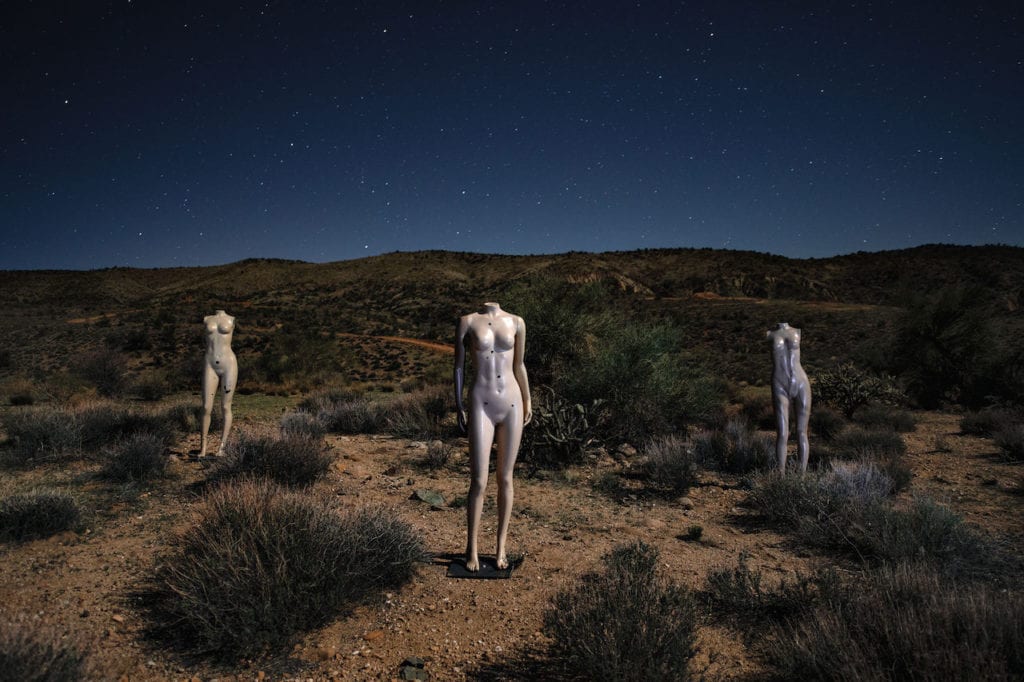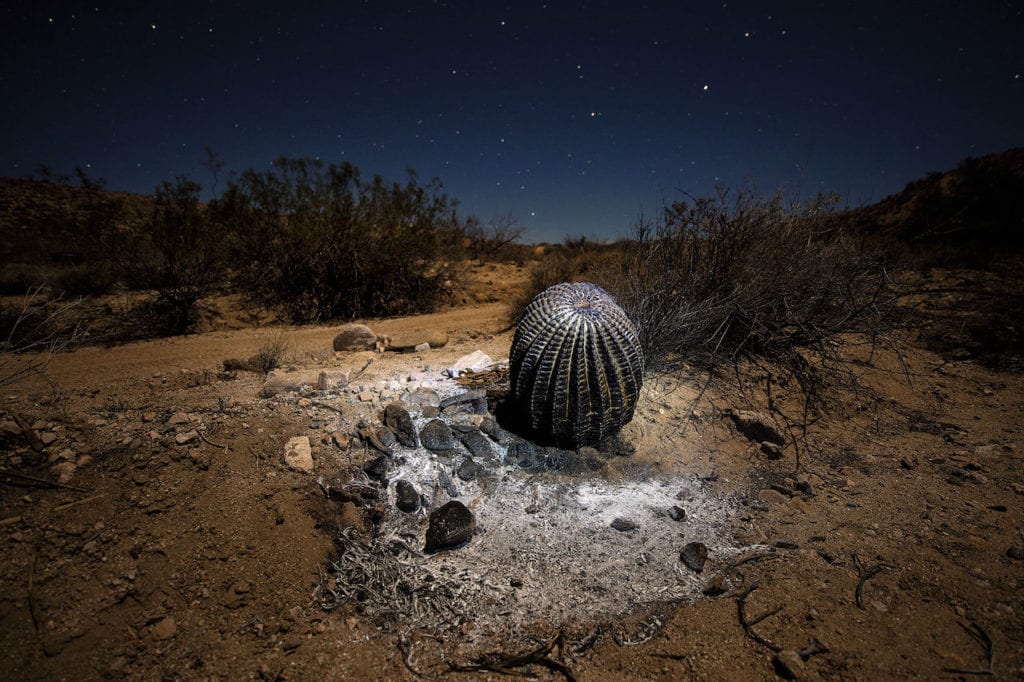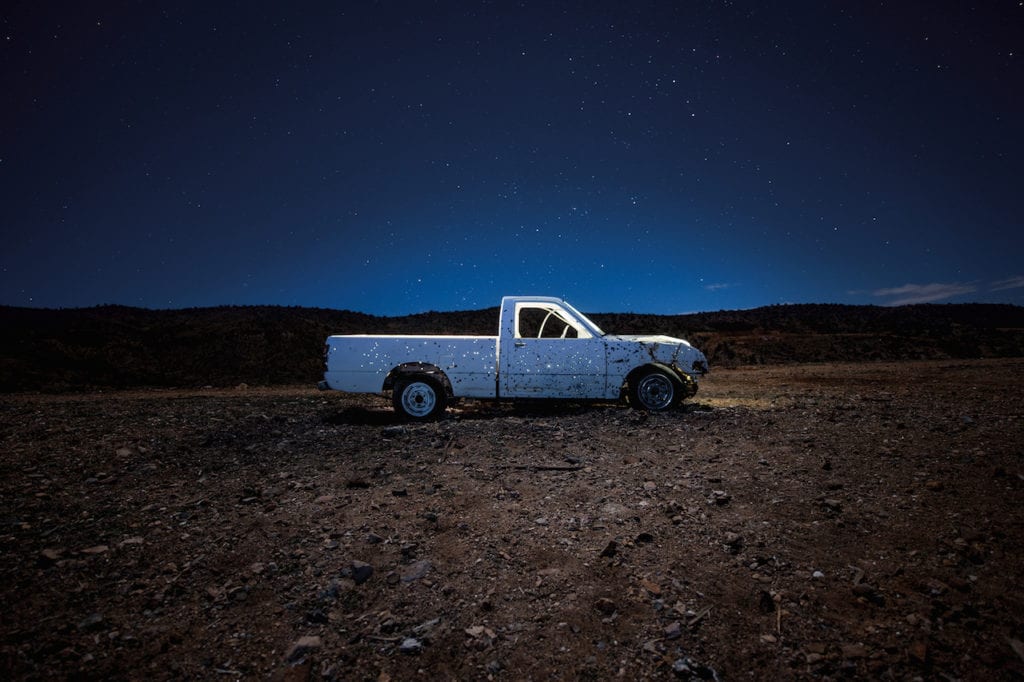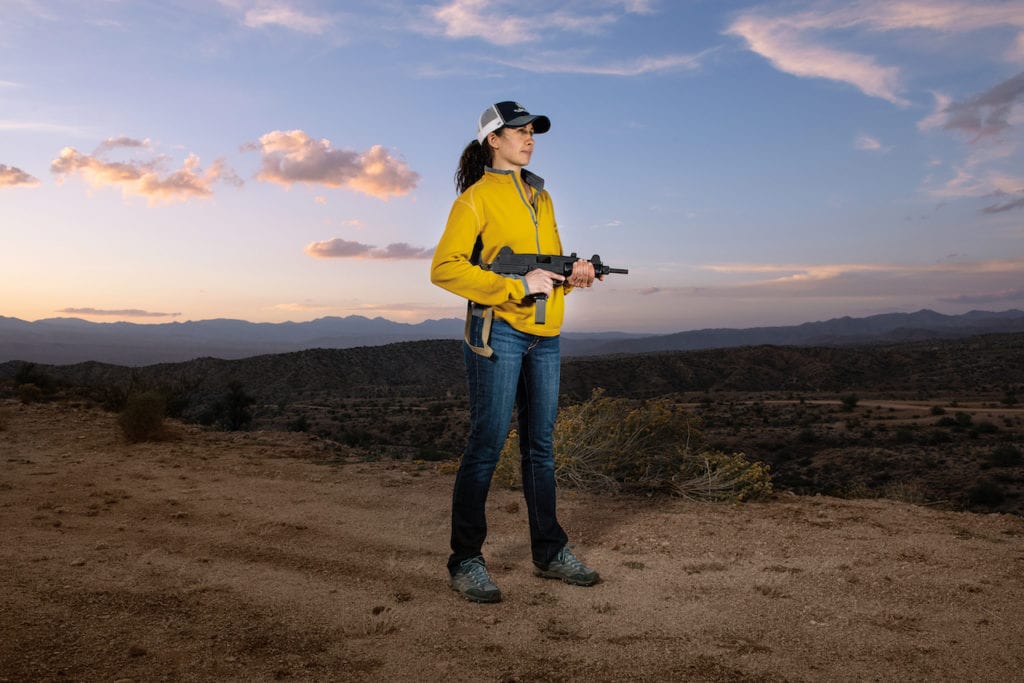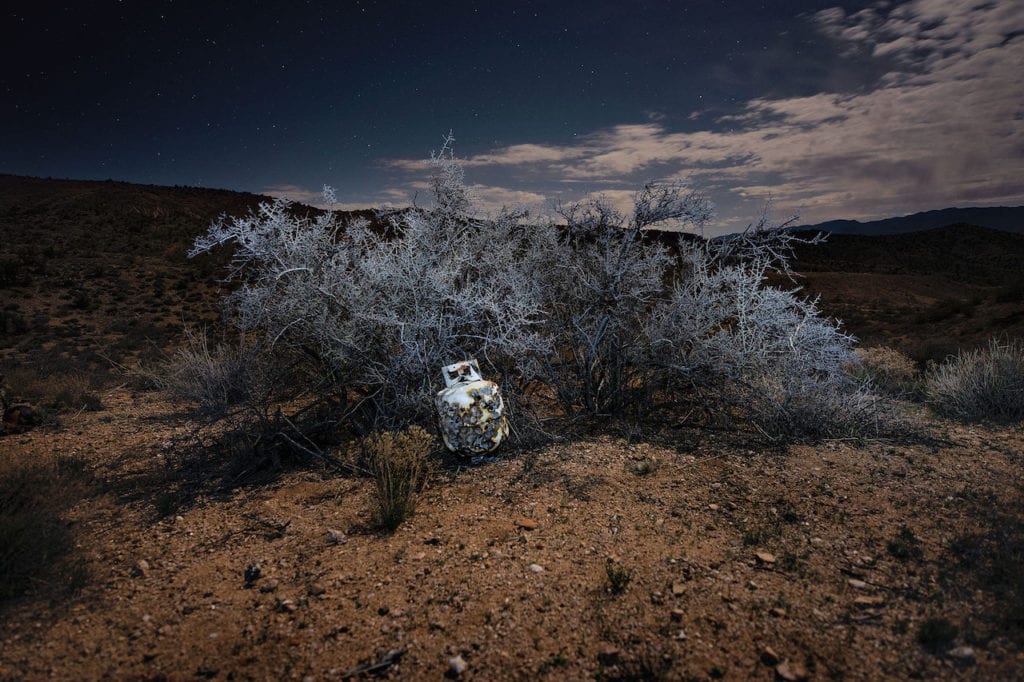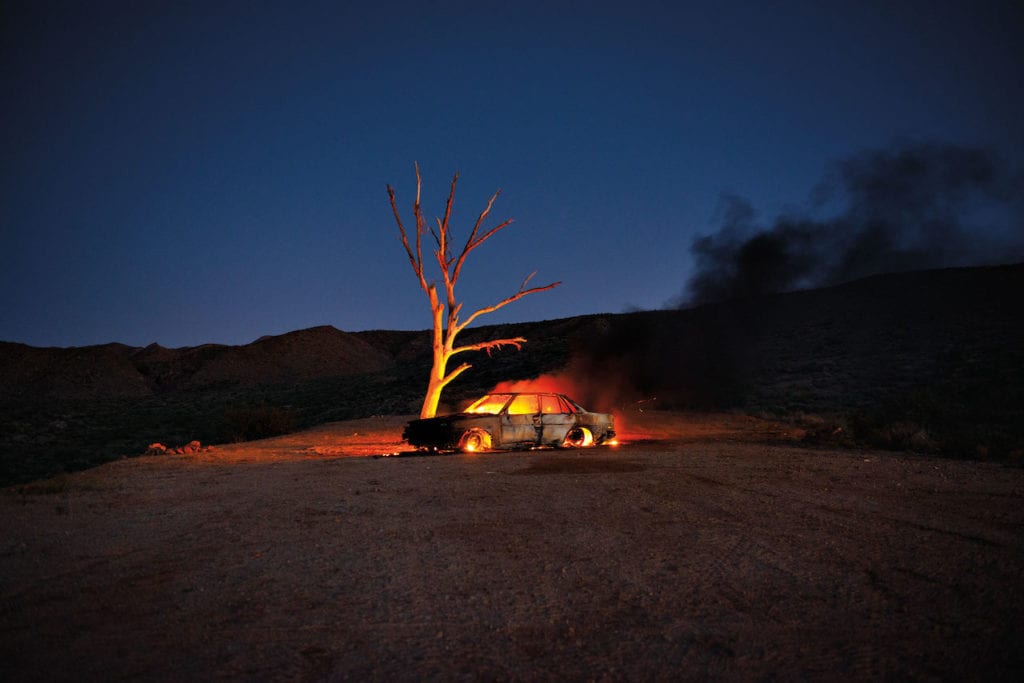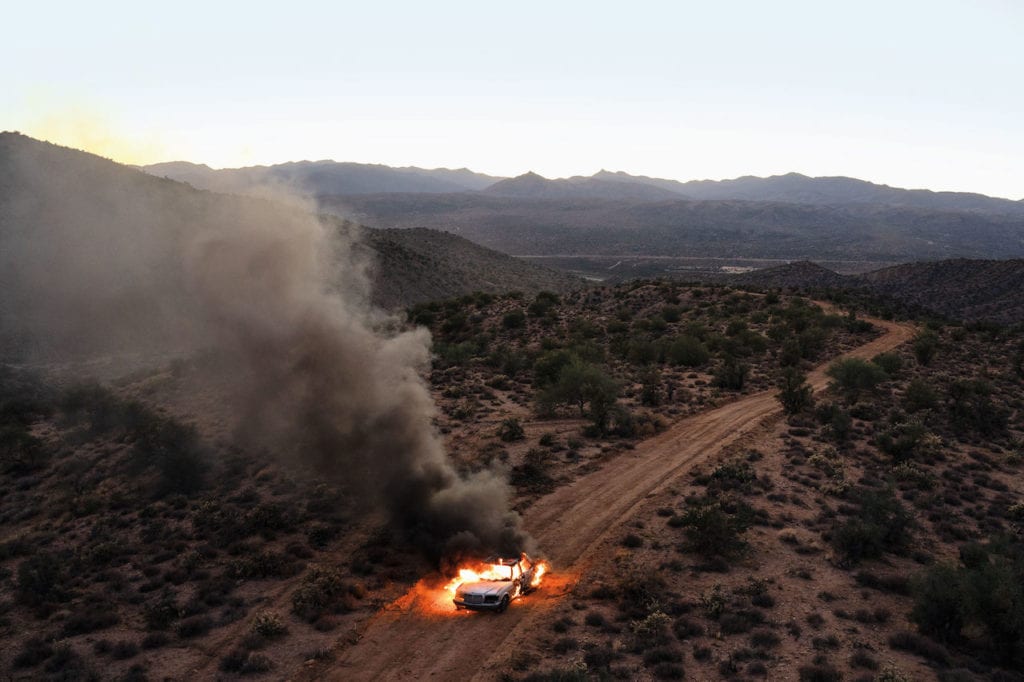The Big Sandy is America’s largest machine-gun shooting range. It stretches a quarter of a mile across the western desert of Arizona, one of the most “gun-friendly” states in the country. Twice a year it is the venue for a three-day convention, where extreme gun enthusiasts sample their most sophisticated weapons. It is not uncommon to see dozens of canons lined up next to armoured tanks, or visitors flying in on a vintage Huey UH-1 helicopter, a model widely known to be a symbol for US involvement in the Vietnam War.
“It almost feels like a private army,” says Jean-François Bouchard, whose project, In Guns We Trust, presents portraits of these military enthusiasts, and eerie images of the shells of trucks and shipping containers blasted by days of recreational target practice. The book, and now exhibition at Arsenal Contemporary in New York, is an attempt to understand and undercover the chilling world of extreme gun culture in the US.
As well as being a visual artist, Bouchard is the co-founder of Sid Lee, a creative advertising agency based in Montreal, Canada, where he is from. Bouchard studied Law at university, but his passion was documentary photography. Now, he is returning to his first love full time, but with a more conceptual approach.
The debate surrounding American gun control has been raging for many years, but it has recently heightened. The number of public mass shootings in the US is increasing, with five of the deadliest ever occurring in the past 10 years. According to the New York Times, in 2018 more people died from firearm injuries in the US than any other year since 1968.
Bouchard visited gun ranges across the country for seven years, but did not take any photographs until two or three years ago. “It took a while to get acquainted enough with the subject to feel comfortable exploring it to the extent that I did,” he says.
Describing himself as a liberal Canadian, Bouchard found it difficult to align himself with this far-right extreme culture. “My work is very much fed by empathy, and trying to see the humanity and commonality that we all have, but trying to do this project with empathy was a challenge,” he says.
Over several visits to the Big Sandy, Bouchard found that many of its regulars had either served in the army themselves, or had family who did, and saw gun culture as not just a legal right, but a civic duty. “They believe that a healthy democracy is dependent on a counter-balance of power to the government, says Bouchard.
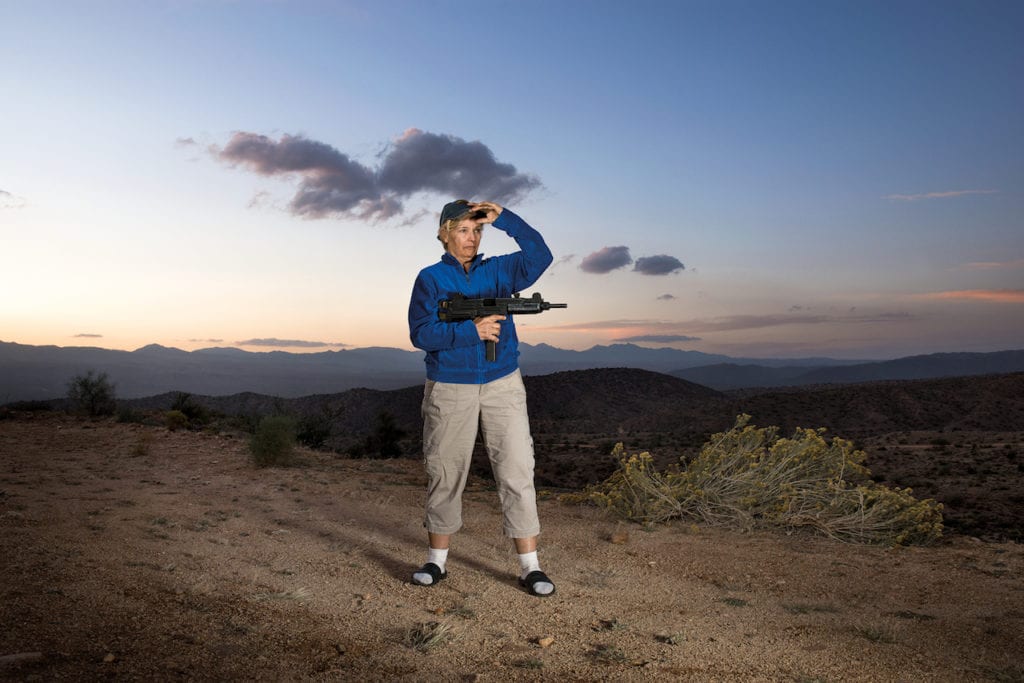
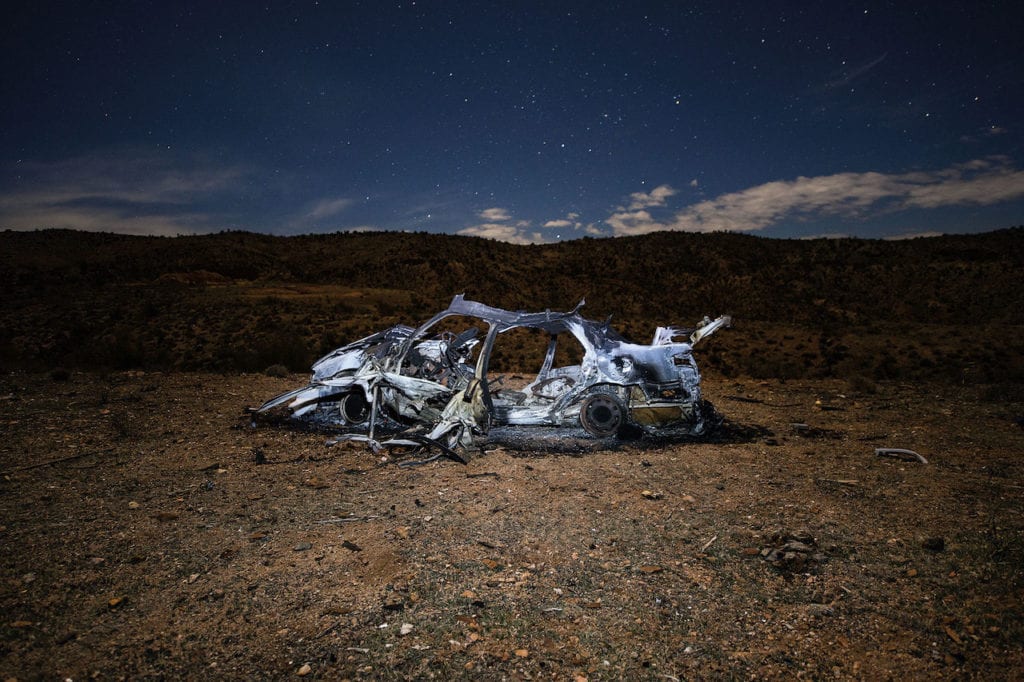
This is an unsettling thought, especially for those of us who are not from a country or state like Arizona where anyone over the age of 18 can carry a loaded firearm without a license. But, for those who visit the Big Sandy, guns are necessary to ensure their safety, and moreover, they provide access into a community of like-minded individuals.
“I didn’t change my opinions on the matter at all, but I better understand where these people come from,” says Bouchard, adding that the people he met were “more articulate” than the way the liberal media may portray gun enthusiasts.
Inspired by cinematic photographers such as Alex Prager and Gregory Crewdson, Bouchard approached the topic conceptually, but with journalistic intentions. Using a flashlight bought at a dollar store to light up the targets, Bouchard shot mostly at night. “My goal is to enrich storytelling and immerse viewers into the world that I was walking into,” he says, “the aftermath was more interesting to me than the action of what was going on during the day”.
In Guns We Trust is part of an extended project on extreme American subcultures – Bouchard’s latest series, Escape From Babylon, investigates libertarians who reject modern society and live off the grid in squats and communes.
What attracts Bouchard to these extreme subcultures is the idea that humans are more alike than they are different. In the foreword to the book, artist and novelist Douglas Coupland explores this idea, titling his essay That One Little Thing. “Possibly the largest conversation happening in the US today is, ‘What are we now supposed to think about all of these people who are pretty much like me in almost every way — except for one little thing?’,” he writes.
Bouchard’s goal is to better understand American culture through delving into parts of its subculture. “Subcultures have been documented a lot, but I’m interested in exploring the very extreme, because I believe the extreme can say a lot about the mainstream.”
In Guns We Trust by Jean-François Bouchard is published by the Magenta Foundation, available to purchase for £35. The exhibition is on display at Arsenal Contemporary in New York between 30 April and 23 June 2019.
www.jfbouchard.com
www.arsenalcontemporary.com
www.magentafoundation.org
